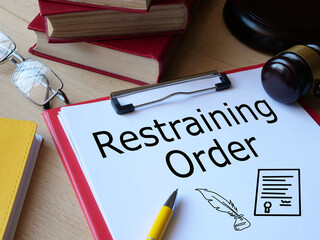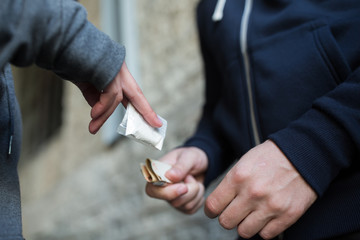One of the most common crimes is drug possession. In fact, there are thousands of drug possession arrests every year. Although most people know what drug possession is, they don’t understand the implications of possession charges. They also don’t know how to handle the situation. Sometimes, they don’t even realize that they can fight their charges. To prepare you for your ordeal, here is everything that you should know about drug possession charges.
Types of Possession Charges
Before you can learn how to handle possession charges, you need to understand the different types. Although the laws vary in every state, there are a few general types of possession.
1. Possession of Drug Paraphernalia
If you own equipment that one can use to take illegal drugs, then a police officer can arrest you. This includes anything that allows you to inhale, inject, or hide illegal drugs. Typically, drug paraphernalia refers to pipes, bongs, and syringes. While some of these items are legal for other uses, they are illegal for using them with drugs.
2. Simple Possession
One of the more common drug crimes is possession. This crime occurs when you have a small amount of an illegal controlled substance on your person. For example, you might have some cocaine or heroin on you. In some states, marijuana is also illegal. Usually, the penalties for this crime are not as severe as other drug crimes.
3. Possession with the Intent to Distribute
If a police officer finds that you have a large quantity of drugs on you, then he could charge you with possession with intent to distribute. This type of charge often has very strict penalties.
4. Drug Trafficking
When you have a large amount of drugs in your possession, law enforcement could believe that you are trafficking drugs. This type of charge is even more serious than possession with the intent to distribute. It occurs when the court believes that you sold, transported, or imported illegal controlled substances. As a felony, this crime has harsh penalties. You could spend years in jail.
Defending Possession Charges
Although defending possession charges is difficult, it is possible. However, you first need to find a lawyer. As soon as a police officer arrests you, you should contact a lawyer. Without one, you could make a mistake that causes you to spend time in jail. Your lawyer can advise you on what to say and how to act. With his advice, you can avoid saying anything incriminating.
Your lawyer can also come up with a defense strategy. There are many different ways that you can defend possession charges. Here are a few of those ways:
1. Overload the Prosecution
Often, simple possession cases are at the bottom of the court’s priority list. If a lawyer intensely handles your case, then he can make more work than the court wants. For example, he can create many document requests and depositions. By giving the prosecutor hours of work, your lawyer can wear her down. Then, the prosecutor might decide to drop the charges. If she doesn’t drop them, then she might offer a plea bargain with reduced charges. In either case, it would be a good outcome for you.
Overloading the prosecutor could also mean that she fails to provide materials during discovery. If this occurs, then your lawyer could convince a judge to dismiss the charges. However, there is a risk of overloading the prosecution. The prosecutor could take a strong interest in your case. Your lawyer needs to decide if this is the best option for your case.
2. Diversion Programs
In some states, there is a push to offer diversion programs to drug offenders. If you face possession charges, then your lawyer could convince a judge that rehabilitation is the best option. For example, a judge could agree to sentence you to fines and a drug treatment program. After you complete the program and pay the fines, then you could end up with the judge dropping your charges. There would be no conviction on your record. However, there is one caveat. If you participate in rehabilitation, then you need to remain clean. Failing to do so could lead to serious legal consequences.
3. Establishing Constructive Possession
In possession cases, the prosecution needs to prove that the drugs are yours. However, your lawyer may be able to create a doubt that the drugs are yours. For example, the police could find drugs in the car you drove. But the car was a friend’s car and not yours. In this case, the drugs could belong to your friend. In this situation, your lawyer could create a reasonable doubt that the drugs are yours. With that doubt, the court won’t convict you.
4. Challenge the Evidence
A police officer needs to collect evidence against you in a legal manner. For example, a police officer cannot stop your vehicle without reason. If the stop or search was illegal, then the evidence against you is not allowed in court. The prosecution would have no case.
There are other ways to fight your charges. However, they all require a lawyer’s expertise. Contact a lawyer today to fight your possession charges. Otherwise, you risk high fines and imprisonment.

